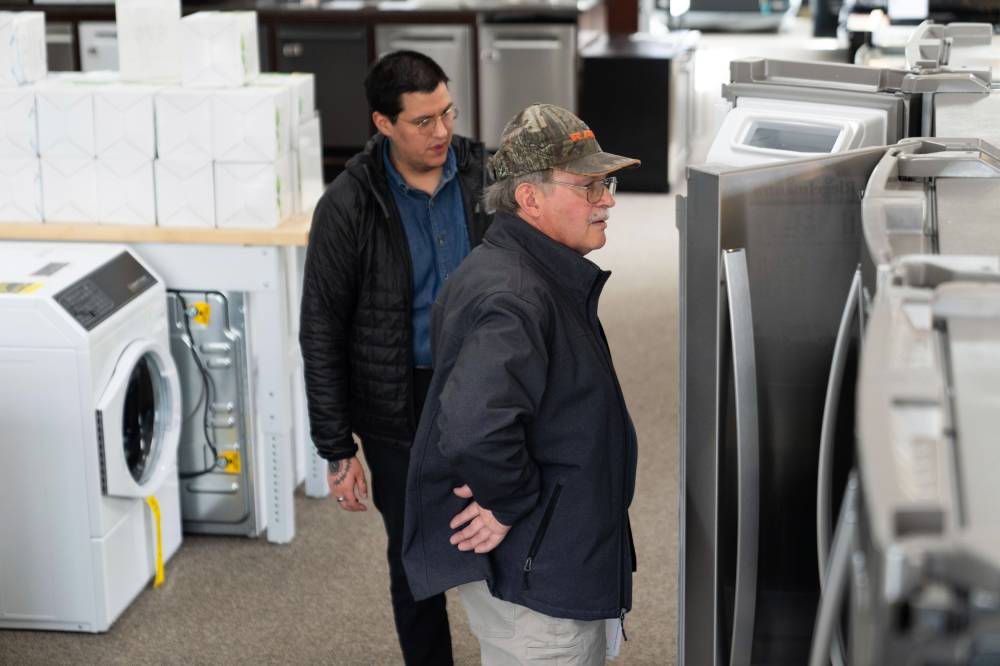US consumers rush to buy big-ticket items before tariffs kick in

John Gutierrez had been thinking about buying a new laptop for the past year.
The Austin, Texas, resident needed a computer with faster processing and increased storage for his photography work and had his sights set on a product from a Taiwanese brand.
Then US President Donald Trump announced expansive new import tariffs on Wednesday, including a 32-percent tax on imports from Taiwan.
That same day, Gutierrez ordered the laptop, with a base price of $2,400, from a retailer in New York specializing in photo and video gear.
“I thought I’d bite the bullet, buy it now, and then that way I’ll have the latest technology on my laptop and don’t have to worry about the tariffs,” he said.
Gutierrez was among US consumers rushing to buy big-ticket items before the tariffs take effect from Saturday, April 5, to next Wednesday, April 9.
Economists say the tariffs are expected to increase prices for everyday items, warning of potentially weakened US economic growth.
The White House hopes that tariffs will prod countries to open their economies to more American exports, leading to negotiations that could reduce tariffs, or that companies will increase their production in the United States to avoid higher import taxes.
‘Watching the president’
Rob Blackwell and his wife needed a new car that could handle long drives from Arlington, Virginia, to their son’s college.
Their current electric vehicle (EV) is older with a limited range, and it will soon be used by their daughter, who is about to get her driver’s license.
“I have been telling my wife that for some time we were going to need to do it,” he said, “and I was watching to see what the president did with tariffs.”
Blackwell wanted another EV, but said leasing made more economic sense because the technology is ever-changing.
He had his eye on the new General Motors Optiq—an American car but made in Mexico, which could be subject to tariffs on supply chains that might increase the cost.
After first hearing that tariffs would be announced, they made plans to lease the car. He said the dealership honored the agreement they worked out before the tariffs were finalized.
Although the salespeople were a pleasure to deal with, Blackwell sensed a shift in their stance.
“They know what we know, which is suddenly it flips from a buyer’s market to a seller’s market very quickly,” Blackwell said, adding that he is happy with his choice.
‘Pre-tariff deal’
Lee Wochner, CEO of Burbank, California-based marketing firm Counterintuity, also needed a new vehicle. He wanted a more presentable car for business meetings, but kept putting it off because of his busy work schedule.
On March 27, a Thursday, he told his firm’s car broker: “Ed, I need a car pronto and it’s got to happen by Sunday.”
The broker gave him some car and pricing options and he leased an Audi Q3, which was delivered on Sunday to his house by a nearby dealership.
A quick back-of-the-envelope calculation showed how much he saved by leasing before the tariffs were implemented. If he had waited, Wochner said, it would have cost about another $4,300.
Losing trust of int’l market
“One of the things my car broker said was that with deals that were already written, some of the dealerships were ripping them up already and renegotiating them because they were afraid that they weren’t going to be able to get enough new inventory at a price anybody would buy,” he said.
He believes prices will continue to increase because the United States has lost the trust of the international trade market.
“If you need a new car, if you can get that pre-tariff deal still, you should go get it,” he said, “because who knows what next Wednesday might be like.”

















